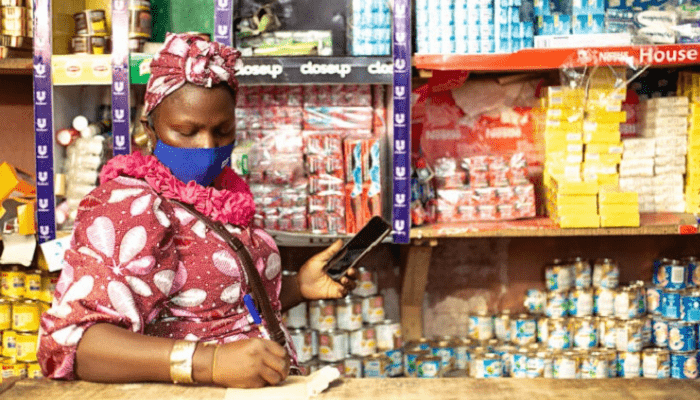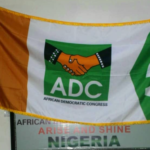According to the MoneyPoint Informal Economy Report 2025, almost half of Nigeria's informal businesses generate less than N20,000 in revenue per day, highlighting the low margins and persistent struggles of the small enterprises that power the country's economy.
The report revealed that “44 percent of businesses in Nigeria's informal economy earn less than N20,000 ($12) per day,” placing most operators at the lower end of the income spectrum despite their significant contribution to national development.
It further revealed that “the average daily revenue range is between N20,000 and N50,000, while the average profit range is between N10,000 and N20,000, of which 70 per cent earn less than N50,000 per day.”
The data highlights a recurring challenge in Nigeria's informal sector: low profit margins that persist despite strong business activity. The report said higher revenue values do not necessarily translate into significant profits, reflecting the rising cost of doing business across the country.
Inflationary pressures, supply chain disruptions and a weak Naira have worsened the condition of small enterprises which are the backbone of Nigeria's economy. “79% of businesses in the informal economy have seen an increase in the cost of doing business in the past year,” the report said, citing increased prices from suppliers, increased transportation costs and the depreciation of the naira as primary factors.
This financial stress has contributed to the fragile ecosystem of survivalist businesses in the report. While many entrepreneurs have seen revenues rise, their profits have failed to keep pace.
“The majority of businesses (65 percent) in the informal economy have experienced some increase in their business revenues over the past year. However, the impact on profits is small, with only 47 percent of them reporting a corresponding increase in their profits,” the report said.
Despite these challenges, the informal sector remains a major pillar of Nigeria's economic landscape. According to the report, micro, small and medium-sized enterprises (MSMEs), most of which operate informally, contribute about 65 percent to GDP and provide more than 80 percent of all jobs. The sector includes millions of small traders, artisans and service providers who sustain daily economic activity in cities and rural communities.
The gender dimension of informal trade also reveals persistent inequalities. The report found that “41 per cent of women-owned businesses in the informal economy make less than N10,000 in profits per day, while 34 per cent of men-owned businesses make more than N50,000 per day. Furthermore, 10 per cent of women-owned businesses make more than N50,000 per day, compared to 16 per cent of men-owned businesses.”
This gap reflects unequal access to resources and credit facilities between male and female entrepreneurs. The report also notes that women operate smaller businesses and are more likely to rely on family support or informal savings systems to finance their operations.
Beyond income inequalities, the MoneyPoint Informal Economy Report 2025 highlights structural challenges such as limited formal employment, low access to credit and reliance on cash-based systems. “Informal businesses are becoming more averse to credit,” it said, with 51 percent of respondents reporting that they have never taken a loan and do not intend to.
The few people who do take out loans most often use the loans to expand business operations, such as purchasing equipment, renovating, or opening new locations. However, only 6 percent of informal businesses have obtained secured loans of more than N1 million.
Record keeping remains another major hurdle. “One in four informal business owners does not keep business records,” the report found, adding that “of the share that do keep some kind of records (structured or unstructured), 38% say they keep track of their business mentally, without any written records.”
The structure of Nigeria's informal economy also continues to be dominated by small, individually owned enterprises. The report said that 85 percent of businesses in the informal economy are sole proprietorships, while only 40 percent employ workers. Of those that do, 75 percent have one to three employees.
While most of these businesses struggle to scale, some have demonstrated resilience and the ability to grow when provided the right support. The report found that informal businesses that have existed for a longer time are more likely to employ staff, suggesting that access to financial instruments, capacity-building and formalization opportunities can help improve their sustainability.
The MoneyPoint Informal Economy Report 2025 also underlined the need for continued policy attention. It added that “under the radar, the cost of doing business has increased for 80 percent of informal businesses, a trend that threatens livelihoods and limits the sector's contribution to inclusive growth.”
MoneyPoint, which developed the report in partnership with the International Finance Corporation (IFC) and other stakeholders, said the findings are intended to help policymakers, regulators and the private sector better understand the realities of the informal economy.
While the report highlights challenges, it also presents opportunities for improvement. It states that “Nigeria's informal economy remains central to the country's story of resilience and enterprise, with great potential for growth when they are supported and given access to the tools they need to grow.”











